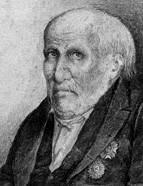

The narrative develops a dual focus: on the one hand, Brazil emerges as the product of the free trade opened by the Navigations and the progress of a superior commercial civilisation; on the other, it suggests a persistent “providential plan” favouring the American empire. This providential element is not framed as a “prophecy,” with the historian as the authorised interpreter of a revealed truth, nor does it describe miracles. Instead, successive “coincidences” are portrayed as evidence of a higher force. Hence, Lisboa’s conceptual shift in referring to the “discovery” of Brazil as the “Finding of Brazil.” While the term discovery could apply to deliberate expeditions like those of Columbus or Vasco da Gama, who sought specific objectives, Cabral’s arrival in Brazil is depicted as fortuitous and accidental. In a lengthy note referencing Robertson, Southey, and William Roscoe, Lisboa defines chance as the operation of causes not yet fully understood, suggesting that the historian’s role is to uncover them; only then can their study become useful for understanding great events (Lisboa, 1825, p. 48). Through this conceptual shift, Lisboa seems intent on framing Brazilian independence as an event embedded in a global history with profound reasons: the movement towards the opening and universalisation of trade and a providential plan to transplant European monarchical civilisation to the Americas.
Under renewed pressure from Emperor Pedro I, Lisboa interrupted his initial plan to address directly the events leading to independence. In the subsequent three volumes, published in 1827, 1829, and 1830, he examined the period from 1820 to 1823, entering the contentious realm of contemporary history. All t hese volumes are accompanied by introductions and appendices in which Lisboa reviews and responds to various national and foreign authors who had written about Brazil’s history and independence, making his work the first critical review of the historical literature on Brazil (Araujo, 2010).
This work is financed by national funds through FCT - Foundation for Science and Technology, I.P, in the scope of the projects UIDB/04311/2020 and UIDP/04311/2020.
